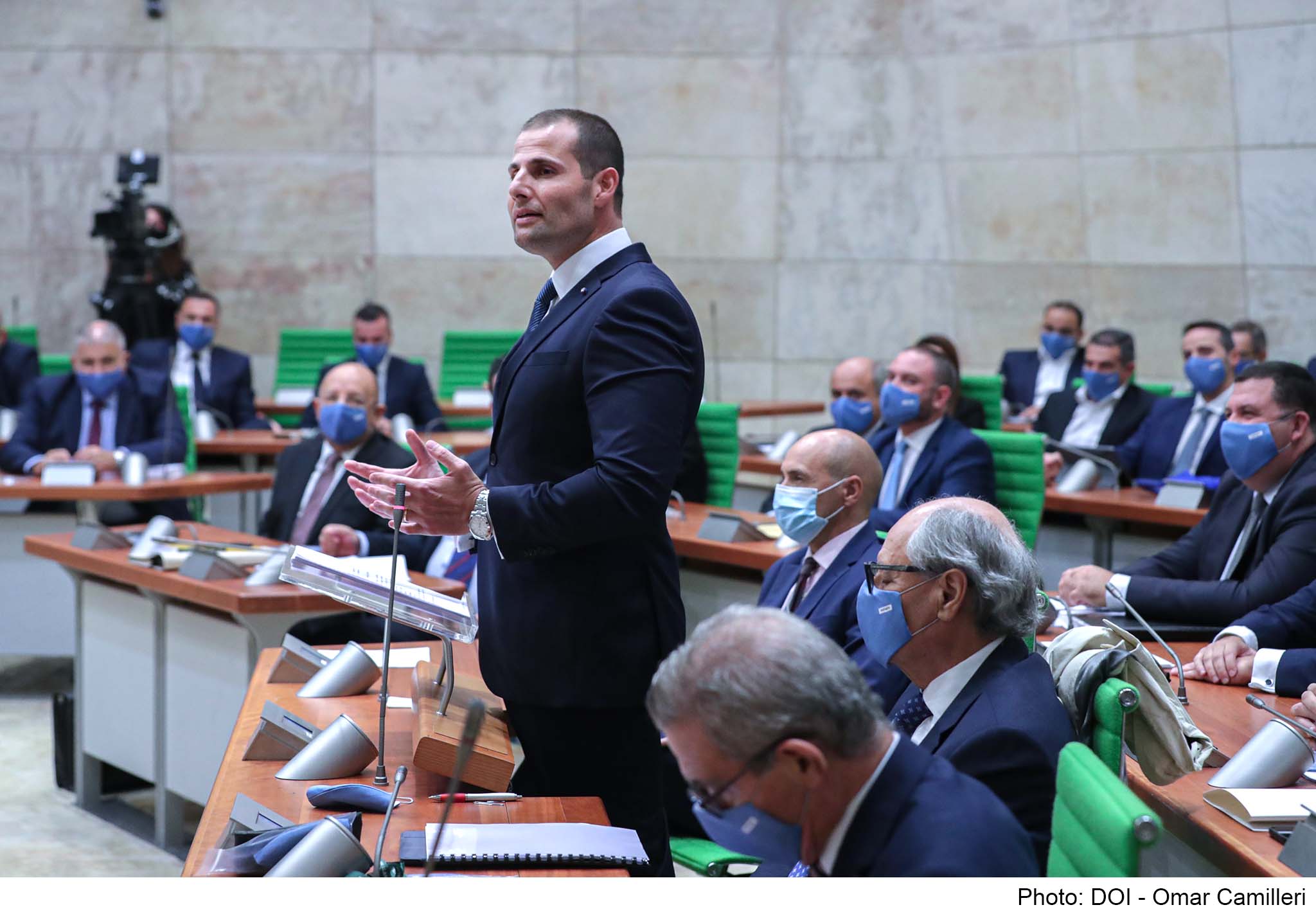This week’s court hearing on the compilation of evidence against Yorgen Fenech has shed more light on those involved in the assassination of investigative journalist Daphne Caruana Galizia, as data from the accused mastermind’s phone revealed intimate ties with Malta’s most powerful politicians.
The slain journalist’s son, Matthew, testified that emails his mother received in 2017 indicated the consortium behind Malta’s controversial Electrogas power station was on the verge of financial collapse.
The massive data leak also confirmed that accused murder mastermind Yorgen Fenech was the ‘key person’ in the project. “Decisions were taken by him [Fenech]. He would be contacted when they needed a favour from Konrad Mizzi or the Prime Minister. They always went to Yorgen.”
Matthew said Daphne was planning to publish the results of her investigation into the corruption-riddled deal by the end of the year, but these revelations were interrupted by the assassination.
“This was the motive for my mother’s murder.”
Police inspector Keith Arnaud told the court that data extracted from Fenech’s phone confirmed the accused mastermind’s intimate ties to top politicians.
Investigators found a copy of the presidential pardon offered to middleman Melvin Theuma in exchange for information about the murder. Fenech told police it was sent to him by disgraced former prime minister Joseph Muscat’s chief of staff Keith Schembri. The police also said they could not confirm this because Schembri ‘lost’ his phone just before his arrest last November.
The press has revealed that Fenech’s phone contained two large volumes of messages between him, Muscat and Schembri. Muscat always insisted it was nothing more than a friendly chat where the three shared photos of food and wine.
Keith Arnaud told the court this week that it was Muscat who set up the infamous WhatsApp group, two days after the alleged hitmen were arrested. He only removed himself when the Times of Malta leaked news that “a major businessman” was among the main suspects in the assassination.
The inspector drew the court’s attention to one particular message that said, “we need to talk, you, me and k”, sent in January 2019 before the men met at Muscat’s private birthday party, an event not even Cabinet ministers were invited to.
Police also found messages that Fenech sent to Schembri on the night before his dramatic pre-dawn arrest, including, “Don’t leave me alone”. Fenech also asked if “they were going to come today,” to which Schembri replied, “No”.
Fenech’s lawyers claim their client’s attempt to leave Malta by yacht was just a routine trip and not an escape attempt, but Arnaud confirmed that Fenech had told his uncle to care for his children and that his plan was to travel overland from Italy. He was advised not to use his credit cards while abroad.
The businessman had also asked the CEO of Malta’s airport whether he could leave the country ‘discreetly’ by private plane, but he was told this wasn’t possible.
These new developments were the first sign of progress after a number of hearings that saw Fenech’s legal team file objections that seemed designed to bog down proceedings in endless delays.
Those truncated hearings included the return of middleman Melvin Theuma to the courtroom after an alleged suicide attempt in July 2020, when the key witness was said to have cut his own throat and stabbed himself in the stomach while under police protection.
The defence team’s repeated demands for access to recordings — rejected by the court one week earlier — delayed Theuma’s cross-examination yet again.
The public inquiry also resumed last week with an open invitation to interested members of the public to submit written observations.
The final hearing last year had ended on a note of conflict, as prime minister Robert Abela attacked the board with accusations of overstepping their mandate for partisan reasons, and of dragging things on in order to take more pay.

As columnist Ranier Fsadni pointed out, that conflict overshadowed a sworn written statement from a private citizen which challenged disgraced former prime minister Joseph Muscat’s testimony.
Muscat insisted he had never tried to incite hatred against Caruana Galizia, but Mark Sammut, son of the late novelist Frans Sammut, told the board that Muscat had invited his father to contribute to ‘a blog intended to attack Caruana Galizia personally’. “The idea was to publish personal stories about her and her family.”
A blog was published after Muscat became Labour leader and before Sammut died – the anonymous obscenity-laden ‘Taste Your Own Medicine’.
Responding to the invitation for submissions, civil society group Repubblika presented the board with a document calling for the urgent need to address extensive mafia infiltration of Malta, listing failures of the State to mitigate risks to the journalist’s life.
“Joseph Muscat and people within his circle enjoyed and continue to enjoy impunity” and “led a campaign to dehumanise Caruana Galizia,” the group said.
The downward slide in Malta’s reputation that began with Muscat’s election shows no sign of slowing under his successor.
The country reached an all time low on Transparency International’s latest Corruption Perceptions Index, marking a fall of seven points since 2015. The global anti-corruption watchdog placed the blame squarely on the country’s leadership, citing “the weak rule of law and the commodification of corrupt practices as a cornerstone of the economy”.
“Malta has cloaked itself as the night manager of the EU’s back door,” they wrote, “who if you drop them some hundreds of thousands of euro, will let you sneak in with little scrutiny”.
“The path it chooses will determine whether corruption continues to flourish unchecked to the detriment of its own people and its European neighbours.”
The fight for justice for Daphne Caruana Galizia is providing a clear indication of which way Malta intends to go.
The following project is weekly Maltese Roundups prepared by The Shift News (Malta) offering the latest news in Daphne Caruana Galizia case.

